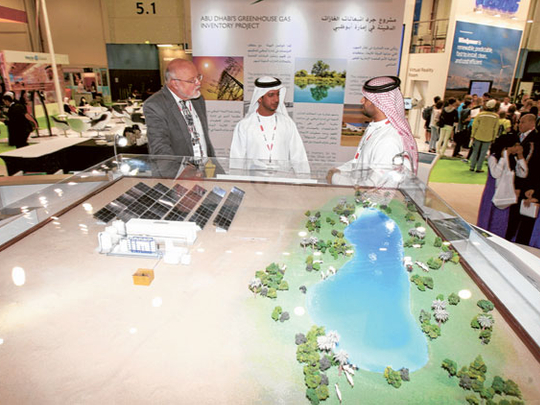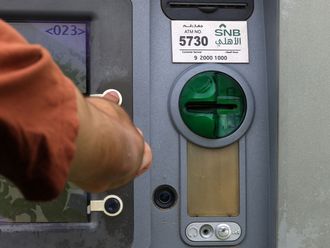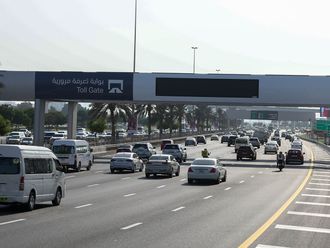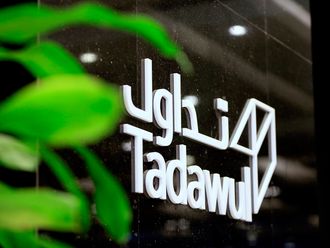
Abu Dhabi: Abu Dhabi has constructed 22 solar desalination plants that will generate 1,050 KwH of clean energy and 6,600 gallons of clean water per day.
The eco-friendly desalination plants will also provide drinking water for the Arabian Oryx, an endangered species, in the desert, said the Environment Agency-Abu Dhabi (EAD).
It is part of the EAD's project to construct 30 solar desalination plants across the emirate of Abu Dhabi, the agency announced at the World Future Energy Summit on Wednesday.
Solar desalination is an innovative zero-carbon technology that extracts brackish water from groundwater aquifers and purifies it into potable water.
EAD is still testing this new solar desalination technique and working to perfect its efficiency through its pilot project in Umm Al Zamool.
The purpose of the pilot project is to obtain data upon which to make recommendations to develop more stations and reduce its capital cost in the future and also increase efficiency.
Gaining relevance
The EAD move gains relevance in the wake of a Global Water Intelligence report last year.
It said the UAE is spending $800 million (Dh2.9 billion) per year on building, operating and maintaining desalination plants and this will jump by over 300 per cent to $3.22 billion (Dh12 billion) over the next six years.
This steep increase in expenditure is the result of a global trend in developing alternative water resources in the face of growing scarcity.
The EAD's solar project is also relevant in the wake of a 2010 report on the Carbon Polluters Index, listing the top 183 countries that emit greenhouse gases.
The UAE topped the list due to rising emissions from desalination plants.
The list was compiled by Maplecroft, a British consultancy.
The Arabian Oryx, which went extinct in the wild in 1972, is being bred in captivity and reintroduced into its former habitats thanks to an innovative initiative by the Environment Agency-Abu Dhabi.
Many of the solar desalination plants have been placed in areas where the Arabian Oryx is being released.
The plants are being used to create watering holes for the newly-introduced Oryxes, as well as irrigate natural vegetation to create food and shelter for these animals.
Razan Khalifa Al Mubarak, Secretary General of EAD, said the EAD has developed a sustainable mechanism for the safe disposal of brine from these stations and is working with the Masdar Institute to study the possibility of increasing the efficiency of these plants.
"This new solar desalination technique is a zero-carbon process," said Thabit Zahran Al Abdul Salam, Director of the Biodiversity Management Sector at EAD.
- 22: solar desalination plants in Abu Dhabi
- 6,600: gallons of water produced on an average day












